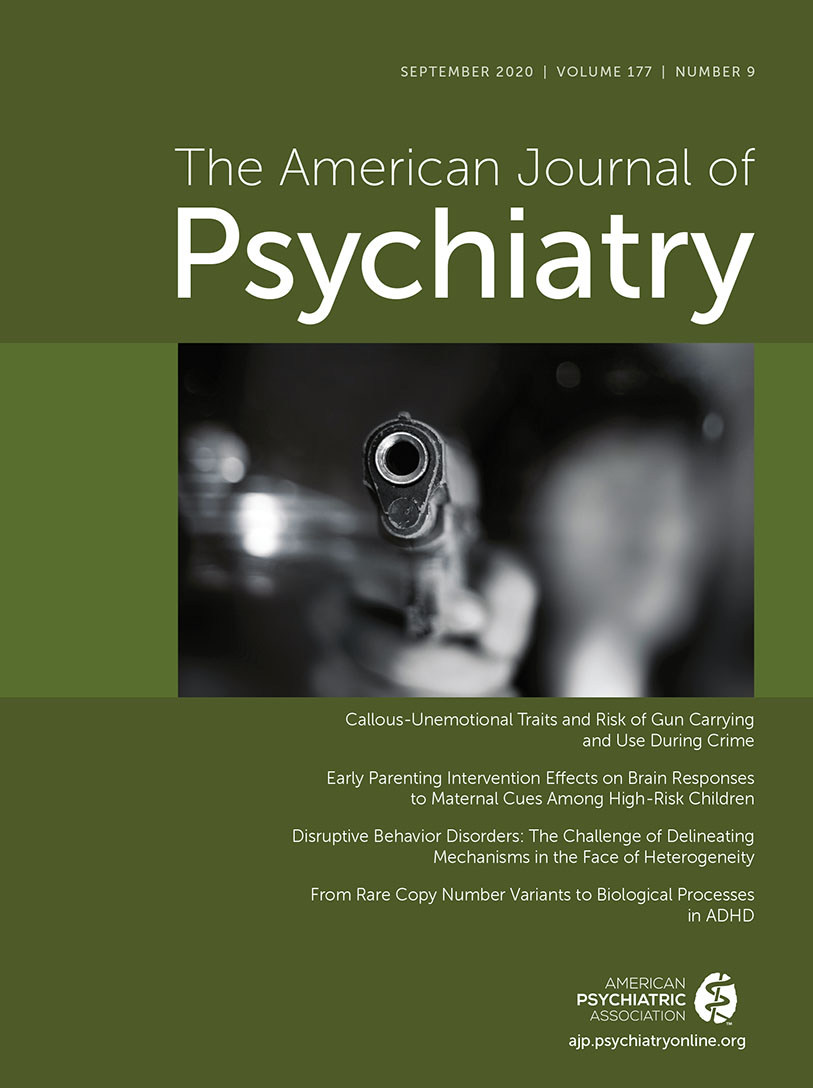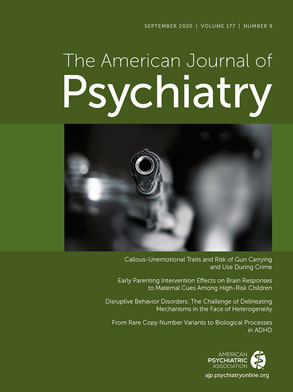T
o the E
ditor: In the October 2019 issue of the
Journal, Lieberman et al. (
1) wrote an excellent review article titled “Early Detection and Preventive Intervention in Schizophrenia: From Fantasy to Reality.” The authors cited three advances that highlighted the potential for disease-modifying treatment. These were the findings that the duration of untreated illness predicted outcome, that first-episode cases responded better than later ones, and that gray matter volume decreased with the illness. They cited 18 studies of intervention in high-risk patients beginning in 2002.
Parallel findings of the potential for disease-modifying treatments are available for bipolar disorder, but few intervention studies in individuals at high risk for bipolar and related disorders have ensued despite cogent rationales. In bipolar disorder, as in schizophrenia, the duration of untreated illness is related to poor outcome in adulthood (
2); early treatment is better than later treatment, and gray matter volume is lost (
3).
At the same time, progressively increasingly high-risk individuals can readily be identified on the basis of having a family history of bipolar disorder, psychosocial adversity in childhood, and an emergence of prodromal symptoms (
4). A study of positive parental history of bipolar disorder alone revealed that 74% of offspring followed for 8 years developed a major psychiatric diagnosis, including (in decreasing percentages) anxiety disorder (40%), major depression, attention deficit hyperactivity disorder, disruptive behavior disorder, substance use disorder, subthreshold bipolarity (13.3%), and mania/hypomania (9.2%) (
5). Each of these childhood illnesses deserves to be recognized and treated.
What was seen as a problem of nonspecificity and low risk of conversion to schizophrenia in those at high risk (
1) could be used as a positive and an asset in studies of those at high risk for mood disorders. Many of the safest candidates for study of early intervention appear to have nonspecific therapeutic illness targets. These could include: phosphatidylcholine; vitamin D
3 and other vitamin preparations; omega-3 fatty acids;
N-acetylcysteine; acetyl-
l-carnitine; minocycline; celecoxib; and more aggressive interventions with antidepressants, anticonvulsants, atypical antipsychotics, and lithium.
One could then study the success of a drug not only on the conversion rate to bipolarity of about 20% but also on the much higher 74% conversion rate to any major psychiatric illness. If one also included a history of childhood adversity and the presence of prodromal symptoms in the calculation, the risk of illness would even be higher and the rationale for intervention stronger (
4). Family-focused therapy has already demonstrated success in those at high risk (
6).
Studies in bipolar disorder are almost 2 decades behind those in schizophrenia (
1); the need is great; the rationale is strong; and the potential interventions for study are even more plentiful. Thus, a new round of studies of early intervention in individuals at high risk for bipolar and multiple other psychiatric disorders should be given the highest priority so that, as Lieberman et al. (
1) subtitled their article, we could also move “from fantasy to reality.”

